
The British Empire was composed of the dominions, colonies, protectorates, mandates, and other territories ruled or administered by the United Kingdom and its predecessor states. It began with the overseas possessions and trading posts established by England in the late 16th and early 17th centuries. At its height in the 19th and early 20th century, it was the largest empire in history and, for over a century, was the foremost global power. By 1913, the British Empire held sway over 412 million people, 23 per cent of the world population at the time, and by 1920, it covered 35.5 million km2 (13.7 million sq mi), 24 per cent of the Earth's total land area. As a result, its constitutional, legal, linguistic, and cultural legacy is widespread. At the peak of its power, it was described as "the empire on which the sun never sets", as the Sun was always shining on at least one of its territories.

Democracy is a form of government in which the people have the authority to deliberate and decide legislation, or to choose governing officials to do so. Who is considered part of "the people" and how authority is shared among or delegated by the people has changed over time and at different rates in different countries. Features of democracy often include freedom of assembly, association, property rights, freedom of religion and speech, citizenship, consent of the governed, voting rights, freedom from unwarranted governmental deprivation of the right to life and liberty, and minority rights.
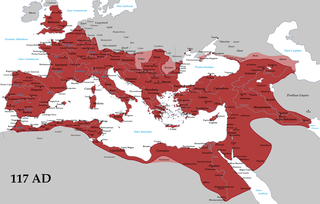
An empire is a political unit made up of several territories and peoples, "usually created by conquest, and divided between a dominant center and subordinate peripheries". The center of the empire exercises political control over the peripheries. Within an empire, different populations have different sets of rights and are governed differently. Narrowly defined, an empire is a sovereign state whose head of state is an emperor; but not all states with aggregate territory under the rule of supreme authorities are called empires or ruled by an emperor; nor have all self-described empires been accepted as such by contemporaries and historians.
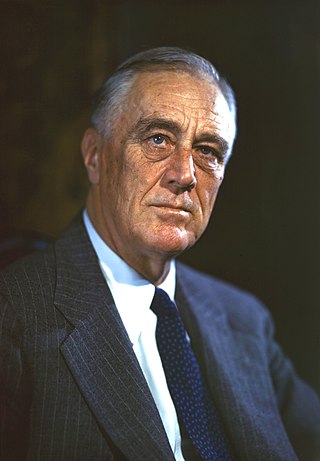
Franklin Delano Roosevelt, commonly known as FDR, was an American statesman and political leader who served as the 32nd president of the United States from 1933 until his death in 1945. He previously served as the 44th governor of New York from 1929 to 1933, the Assistant Secretary of the Navy from 1913 to 1920, and a member of the New York State Senate from 1911 to 1913.

James Monroe was an American statesman, lawyer, diplomat, and Founding Father who served as the fifth president of the United States from 1817 to 1825, a member of the Democratic-Republican Party. He was the last president who was a Founding Father as well as the last president of the Virginia dynasty and the Republican Generation; his presidency coincided with the Era of Good Feelings, concluding the First Party System era of American politics. He is perhaps best known for issuing the Monroe Doctrine, a policy of limiting European colonialism in the America. Preciously he served as governor of Virginia, a member of the United States Senate, U.S. ambassador to France and Britain, the seventh Secretary of State, and the eighth Secretary of War.

Martin Van Buren was an American lawyer and statesman who served as the eighth president of the United States from 1837 to 1841. A primary founder of the Democratic Party, he served as New York's attorney general, U.S. senator, then briefly as the ninth governor of New York before joining Andrew Jackson's administration as the tenth United States secretary of state, minister to Great Britain, and ultimately the eighth vice president when named Jackson's running mate for the 1832 election. Van Buren won the presidency in 1836, lost re-election in 1840, and failed to win the Democratic nomination in 1844. Later in his life, Van Buren emerged as an elder statesman and an important anti-slavery leader who led the Free Soil Party ticket in the 1848 presidential election.

The Democratic-Republican Party, known at the time as the Republican Party and also referred to as the Jeffersonian Republican Party among other names, was an American political party founded by Thomas Jefferson and James Madison in the early 1790s that championed republicanism, agrarianism, political freedom and equality, and expansionism. The party became increasingly dominant after the 1800 elections as the opposing Federalist Party collapsed. The Democratic-Republicans splintered during the 1824 presidential election. The majority faction of the Democratic-Republicans eventually coalesced into the modern Democratic Party, while the minority faction ultimately formed the core of what became the Whig Party.
Superpower describes a state or supranational union that holds a dominant position characterized by the ability to exert influence or project power on a global scale. This is done through the combined means of economic, military, technological, political, and cultural strength as well as diplomatic and soft power influence. Traditionally, superpowers are preeminent among the great powers. While a great power state is capable of exerting its influence globally, superpowers are states so influential that no significant action can be taken by the global community without first considering the positions of the superpowers on the issue.
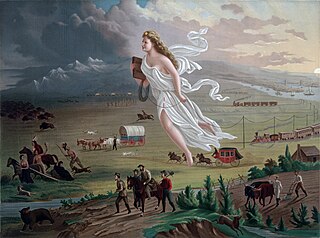
Manifest destiny was a cultural belief in the 19th-century United States that American settlers were destined to expand across North America.

Alfred Emanuel Smith was an American politician who served four terms as Governor of New York and was the Democratic Party’s candidate for president in 1928.
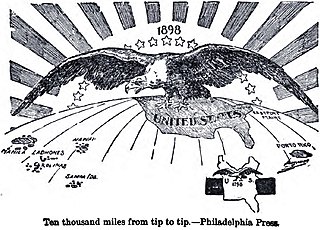
American imperialism is the expansion of American political, economic, cultural, media and military influence beyond the boundaries of the United States. Depending on the commentator, it may include imperialism through outright military conquest; gunboat diplomacy; unequal treaties; subsidization of preferred factions; regime change; or economic penetration through private companies, potentially followed by diplomatic or forceful intervention when those interests are threatened.

Soviet Empire, also referred to as Soviet imperialism, is a political term used in history and Sovietology to describe the actions, influence and hegemony of the Soviet Union, with an emphasis on its dominant role in other countries.

In the history of United States foreign policy, the Roosevelt Corollary was an addition to the Monroe Doctrine articulated by President Theodore Roosevelt in his State of the Union address in 1904 after the Venezuelan crisis of 1902–1903. The corollary states that the United States could intervene in the internal affairs of Latin American countries if they committed flagrant and chronic wrongdoings in order to keep European powers out.

In the history of the 20th century, the interwar period lasted from 11 November 1918 to 1 September 1939, the end of the First World War to the beginning of the Second World War. The interwar period was relatively short, yet featured many significant social, political, and economic changes throughout the world. Petroleum-based energy production and associated mechanisation led to the prosperous Roaring Twenties, a time of both social mobility and economic mobility for the middle class. Automobiles, electric lighting, radio, and more became common among populations in the developed world. The indulgences of the era subsequently were followed by the Great Depression, an unprecedented worldwide economic downturn that severely damaged many of the world's largest economies.

Thomas Jefferson served as the third president of the United States from March 4, 1801, to March 4, 1809. Jefferson assumed the office after defeating incumbent John Adams in the 1800 presidential election. The election was a political realignment in which the Democratic-Republican Party swept the Federalist Party out of power, ushering in a generation of Jeffersonian Republican dominance in American politics. After serving two terms, Jefferson was succeeded by Secretary of State James Madison, also of the Democratic-Republican Party.
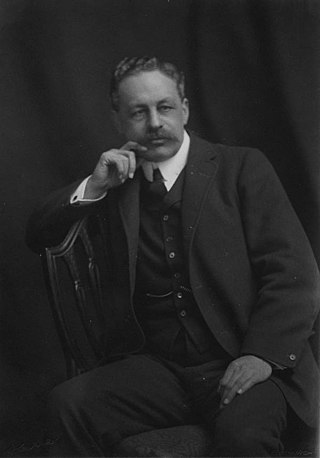
"The Geographical Pivot of History" is an article submitted by Halford John Mackinder in 1904 to the Royal Geographical Society that advances his heartland theory. In this article, Mackinder extended the scope of geopolitical analysis to encompass the entire globe.

The relationship between Chile and the United States, which dates back to the 19th century, has improved significantly since 1988 and is better than at any other time in history. In the late 1980s and early 1990s, the US government applauded the rebirth of democratic practices in Chile, despite having supported the 1973 coup d'état and subsequent military regime.
History of United States foreign policy is a brief overview of major trends regarding the foreign policy of the United States from the American Revolution to the present. The major themes are becoming an "Empire of Liberty", promoting democracy, expanding across the continent, supporting liberal internationalism, contesting World Wars and the Cold War, fighting international terrorism, developing the Third World, and building a strong world economy with low tariffs.
















